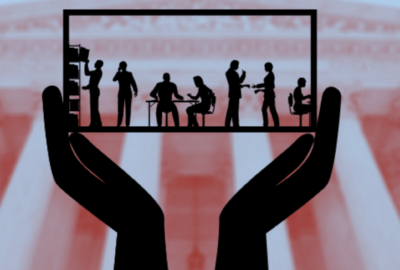U.S. intelligence agencies ‘sharing too much’
Intelligence agencies may be ordered to limit the information they share.
wfedstaff | June 3, 2015 8:00 pm
WASHINGTON – Intelligence agencies may be ordered to limit the information they share.
“When you look at information sharing, I think we have almost overdone it,” says Mike Rogers (R-Michigan), the new chairman of the House Permanent Select Committee on Intelligence.
“We have gotten into an era of need-to-share versus need-to-know. Need-to-know is an important provision when you are trying to do some operation to keep us safer. But need-to-share got us in trouble with WikiLeaks and with other leaks.”
Rogers tells WTOP there could be some changes coming to the way sharing is done.
“The House Intelligence Committee is going to spend some significant time trying to come to a conclusion on that. I think some changes are coming.”
In February 2008, Mike McConnell, who was director of National Intelligence at the time, released a new information sharing strategy.
“Information sharing must improve since it is central to our ability to anticipate and deter the ill intentions of our nation’s adversaries.”
McConnell went on to say the “new culture of collaboration and risk management will require that people and organizations understand and trust how their partners manage risk. We will need a uniform trust model across the intelligence community.”
But as it turned out, one of the biggest threats to U.S. national security since the Sept. 11, 2001 attacks was an adversary operating inside the U.S. military with a secret security clearance.
U.S. Army PFC Bradley Manning allegedly leaked hundreds of thousands of classified U.S. military and State Department documents, which made their way onto WikiLeaks, a whistleblower Web site.
“A kid in the military, sitting in a tent in Kuwait with access to a Secret Internet Protocol Router Network (SIPRNet) terminal should not have access to sensitive diplomatic reporting that has nothing to do with his job,” says a former CIA covert operative.
And Rogers says, “The sheer number, literally hundreds and thousands of people who have access to information, makes us scratch our head about why they have access to it and what they are doing with it that would provide a better security network for the United States. And I think in a lot of cases you can’t come to that conclusion and it has caused us problems.”
The former operative explained how it happens:
“The problem is when someone writes a classified cable overseas, for example, and they send it to half a dozen people who handle it and that cable ends up on the SIPRNet — that automatically puts it into a classified system that can be accessed by 500,000 people with a security clearance and a SIPRNet terminal.”
A U.S. intelligence official with knowledge of the situation says there’s a sense in the intelligence community the “pendulum is swinging back toward exercising greater care in information sharing.”
“That means making sure the right people have the right information to do their jobs the right way. If you widen the circle too greatly, you assume a potentially unacceptable level of risk.”
In addition to dealing with information sharing from a procedural perspective, Rogers says he worries there may be too many people involved in certain elements of the intelligence community.
“We created the Office of the Director of National Intelligence to be a coordinating body to coordinate the sharing resources amongst the intelligence agencies,” he says. “And I think we got a little off track there. The size of the DNI shop is exponentially larger than anyone anticipated.
“And I argue that large bureaucracy that we just sat on top of the intelligence agencies probably is not helping at the end of the day to make sure that people who need the information are getting it.”
A DNI spokeswoman declined to comment on the statement.
The need to share information became an imperative to protect the U.S. after the 2001 terrorist attacks.
A DNI directive from 2008 stated: “The Intelligence Community’s need-to-know culture, a necessity during the Cold War, is now a handicap that threatens our ability to uncover, respond and protect against terrorism and other asymmetric threats.”
But Rogers believes the tables have turned, and he plans to address that and other intelligence community issues with a very simple approach.
“And at the end of the day every session is going to end with: ‘Does that make America more or less safe?’ And if it is ‘less safe,’ we are going to change it. And if it is ‘more safe’ we are going to ask them what we can do help them keep doing it.”
WTOP Intern Leonie Voss conducted research for this report.
Copyright © 2024 Federal News Network. All rights reserved. This website is not intended for users located within the European Economic Area.





